The Computing Conference 2018 kicked off in Hangzhou, Zhejiang province on September 19. In 2016, the conference featured New Retail, New Manufacturing, New Finance, New Technology, and New Energy proposed by Jack Ma, and the 2017 conference highlighted Alibaba's plan to invest RMB 100 billion in establishing DAMO Academy, the group's in-house technology and science research arm.
In this year's conference, the focus was on nurturing economic growth through technology and big data. The key topics in this year's conference include: Alibaba setting up a new chip subsidiary, the launch of ET City Brain 2.0, and Jack Ma's focus on New Manufacturing.
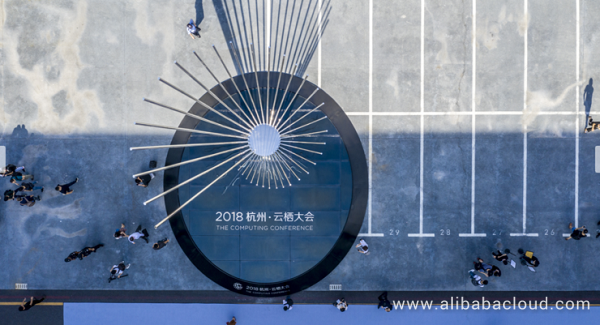
In their opening speeches, both the municipal Party secretary and the mayor welcomed the global tech enthusiasts attending the conference. They said the Hangzhou government is now seeking to build the city into China's first city of digital economy and an Internet-powered innovation and entrepreneurship hub, adding that the government will continue to boost the digital economy development and attract more leading enterprises and top talents to the city. Hangzhou is home to a number of Internet giants, such as Alibaba and NetEase, and it sees an average of 602 market players emerge every day. In addition, the city has also bred several characteristic towns led by the Cloud Town and an array of world-renowned research institutions. "Digital makes Hangzhou younger." The wider application of mobile payment and ET City Brain is increasingly beefing up the city's attraction.
Yuan Jiajun, Deputy Secretary of the CPC Zhejiang Provincial Committee and Governor of Zhejiang Province, also staged for the conference. Yuan said Hangzhou's digitalization is influencing the whole world. He added that the Cloud Town is a result of Zhejiang's high-quality development. Zhejiang will continue to push ahead with the development of its digital economy and drive the construction of a digital China, in a bid to highlight the province's unique position.
Although the host allocated only eight minutes, Daniel Zhang, CEO of Alibaba, made perfect use of his time.
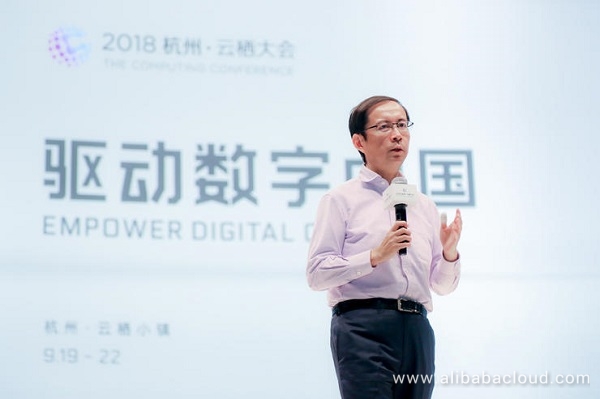
He said that Alibaba reported a gross merchandise volume (GMV) of over RMB 4.8 trillion for 2017, and the figure is expected to hit USD 1 trillion within the next two years. Currently, Alibaba has become a digital economy with businesses covering e-commerce, financial services, logistics, and cloud computing. The group's entire ecosystem is flourishing in the wake of constant evolution.
Alibaba hopes to create a diversified ecosystem and collaborate with its partners to boost digitization, which is part of the group's vision. The objective of technologies is to make the impossible possible, create new service modes, match economic resources efficiently, and revolutionize the experience of all participants.
Zhang said that the Internet had influenced individuals in the past, but digital technologies and the next generation of the Internet will influence the whole society in the next two decades, including politics, culture, people's livelihoods, and commerce.
He also answered a widely discussed question over Alibaba's positioning.
He said Alibaba is and always will be a technology-driven digital economy focusing on making a different commerce and creating new business models.
In addition, Zhang mentioned that DAMO Academy has begun to take shape this year, as 20 of its research projects have secured the world's top awards. Zhang also offered his insights on the five new strategies proposed in 2016, namely, New Retail, New Manufacturing, New Finance, New Technology, and New Energy.
Among them, New Technology will definitely be the engine. The perfect combination of new energy and new technologies can really drive the development of a digital China and drive the world to an amazing era of the Internet of Things (IoT).
The next speaker was Simon Hu, Vice President of Alibaba Group and President of Alibaba Cloud.
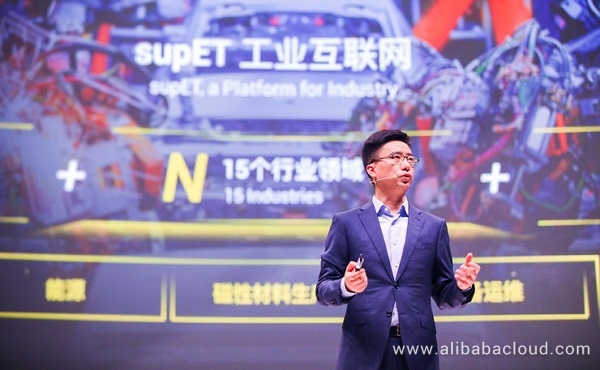
Hu started his speech with a search of the keyword "Hangzhou Impression" to demonstrate technology as a new icon of Hangzhou. After that, he shared five cases of "technologies drive transformation of cities": The number of certificates Liu Yukou and his wife needed for their transportation business dropped from 17 to only one; Xu Cuiqin no longer needed an account book for her shop; Xiao Fangxun completed a trial through an online court; Xu Hao established a medical image on his mobile phone; Xu Haijun used an app to save construction costs. Hu also shared how Alibaba's five new strategies have innovatively changed our lives through the cases of Intime Department Store, Century Mart, Hema Fresh, 2Dfire.com, Caocao Zhuanche, Bank of Hangzhou, Hangzhou Xiaoshan International Airport, Xiolift, Geely Automobile, CHINT, etc.
He said these cases indicate that Hangzhou is on its way to being a city of mobile services, a city of mobile payment, a city of smart healthcare, and a city of innovation and entrepreneurship.
Seattle, Washington in the US nurtured Amazon and Microsoft in the past, and today, the two tech giants are using digital technologies to give the city a new look. Today, Hangzhou has incubated Alibaba Cloud, one of the world's leading cloud computing enterprises, and in turn, Alibaba is pushing the ancient city to lead a new wave of digital transformation.
Hu also announced a plan to integrate AR navigation video into Ali OS to build a vehicle-road collaboration system.
Jin Zhi, Deputy Chief of Zhejiang Provincial Public Security Department, announced the launch of Hangzhou ET City Brain 2.0.
Jin said the new version covers the main urban area, Yuhang District, and Xiaoshan District, with a total coverage of 420 square kilometers, which is 28 times larger than the coverage area of last year. ET City Brain 2.0 connects to 1,300 traffic lights and 4,500 traffic cameras to monitor the seven vital signs of urban traffic, and to dispatch over 200 traffic officers via mobile devices. Moreover, ET City Brain 2.0 is being applied to firefighting for the first time and has become a capable assistant to firefighters in the protection of citizens' lives and property.
Thanks to ET City Brain, traffic efficiency in Hangzhou has significantly improved. According to a ranking of China's most congested cities for the second quarter of this year, Hangzhou has moved from 5th place in 2016 down to 57th place. In addition to urban traffic and firefighting, ET City Brain is now also being piloted in other fields such as credit reporting, cityscape management, municipal administration, and tourist traffic.
As a major contributor to ET City Brain, Wang Jian was naturally an important figure at the conference.
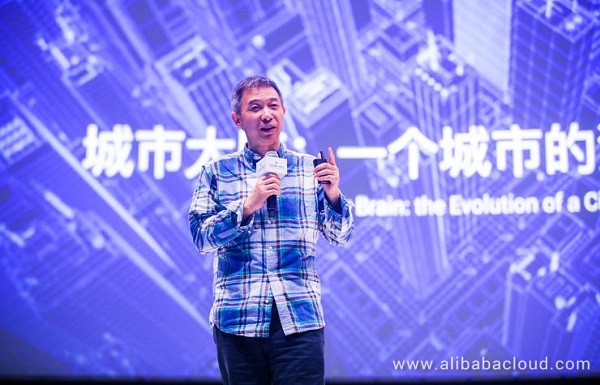
Dr. Wang now serves as honorary Chief of the Cloud Town and Chairman of Technology Steering Committee of Alibaba Group. His speech at the conference was titled "ET City Brain: Evolution of a City." Dressed in a plaid shirt, Wang said, "The city is the greatest invention." When Cloud Town was just a wasteland, Dr. Wang spent his loneliest time there.
"When we talk about big data, we are not viewing data as an urban resource, but when we look at data from a resource perspective, we will find that a city's development needs more than resources like space and water," he said.
"Currently, a number of cities in China haven't maximized their road resources and have been facing many other challenges such as serious loss of running water, however, ET City Brain has left more resources for cities," Wang added. Since the Cloud Town introduced ET City Brain in January 2018, a total of 76 mayors of prefecture- and municipal-level cities have visited Alibaba to draw experience, fulfilling the group's commitment to exploration for other cities.
After Wang's speech, representatives from the China Academy of Urban Planning and Design, Khalifa University of Science and Technology, OBS, SAP, the Ministry of Tourism and Wildlife of the Republic of Kenya, etc. also shared their stories related to Hangzhou.
According to Cheng Li, CTO of Ant Financial, Alipay has served more than 870 million users from China and nine other countries and regions (India, Thailand, South Korea, the Philippines, Indonesia, Hong Kong, Malaysia, Pakistan, and Bangladesh) over the past three years. Mobile payment has become part of daily life in these countries and regions.
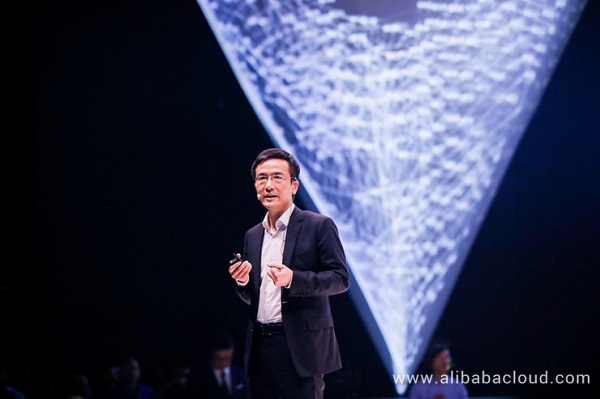
Malaysia has already opened a service allowing local passengers to scan QR codes to take metros, making it the second country after China to introduce the service. In addition, Ant Financial has achieved the world's first blockchain-based cross-border electronic funds transfer between Hong Kong and the Philippines. Cheng said Ant Financial's blockchain technology will be widely used for more secure funds transfer and settlement.
He added that Alipay hopes its finance and technology (fintech) banking services can benefit the two billion or so people in the world who do not yet have access to banking services.
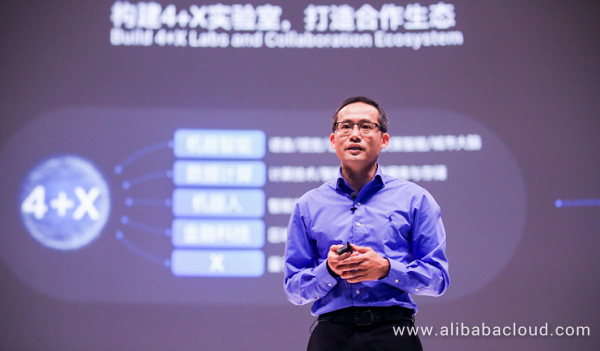
Jeff Zhang, CTO of Alibaba and President of DAMO Academy, announced that Alibaba has established a dedicated semiconductor subsidiary, which is the merger of the chip team of DAMO Academy and microchip maker C-SKY Microsystems Co., Ltd. Like DAMO Academy, the new subsidiary also plans to operate independently and develop cloud-based integrated chips.
Alibaba believes in the power of small forces. The official Chinese name of the new subsidiary contains a nickname of the honey badger, an animal living in much of Africa, Alibaba hopes it can persist in dreams like honey badgers persist in their fearlessness.
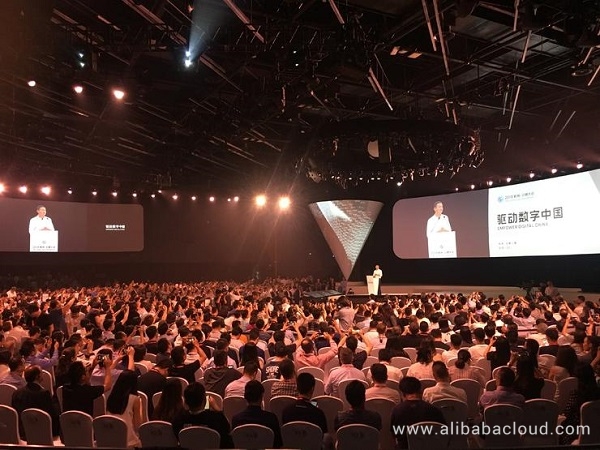
Jack Ma said that it is not the manufacturing industry, but the manufacturing laggards, who will be doomed. IT turns human beings into machines, whereas data technology (DT) seeks to make machines human-like.
Whereas IT aims to control the future, DT seeks to create the future. Whereas the age of IT nurtures the manufacturing industry, the age of DT shall nourish creativity. Whereas IT is to benefit ourselves, DT is to benefit others. Whereas the age of IT requires standardization, the age of DT asks for personalization.
In today's external environment, turning away from New Manufacturing is like driving in blindness, because you won't know who your customers are and what they want. New Manufacturing will redefine the manufacturing industry, supply chain, business services, and operations. It will lead a revolution not only in technology but also in ideology.
When New Manufacturing replaces the traditional one, the trade war will cease to exist.
Ma believes that trade wars, like assembly lines, are products of the Industrial Age. It is ridiculous to maintain employment through a trade war, because future manufacturing will not be a major job creator. In the future, everything will be "made on the Internet." When manufacturing has no borders and everyone can engage in trade, all the rules will be reshaped, and trade wars will never break out.
Ma also predicted that IoT, chips, AI, big data, and cloud computing will reshape today's production workshops in the same way that steam machines and petroleum oil changed the handicraft industry. In the future, data algorithm experts will write code at workshops instead of offices. Successful manufacturers will all be those who embrace the Internet, the IoT, cloud computing, and big data.
Speaking of the IoT, Ma said it is essentially an Internet of Intelligences (IoI), adding that an IoT without IoI is like a vegetable. Over 90% of the machinery and equipment in China are not interconnected. If all the machinery and equipment are interconnected and intelligentized, there will be a different landscape.
I had so much to say before the wonderful show given by the mathematicians. However, compared to what they have shared, my sharing seems to be less appealing.
I have had good conversations with these mathematicians last night. Now I don't know what I'm going to talk. During their two hours of speeches, I didn't get much, but I am very touched. I have always regretted that I didn't choose the world of mathematics. However, I also feel lucky that I didn't choose it, because I probably would have been kicked out.
I know nothing about those formulas they talked about, except 1+1=2 and the Pythagorean theorem, but I feel good, as I know those formulas are a foundation for science. Without the firm foundation of mathematics, science wouldn't be possible; and without the foundation of science, there wouldn't be any technology. I think I should express my special thanks to those true heroes who keep working in obscurity yet making great contributions to the whole society.
Alibaba feels honored to be able to develop and do something for these basic sciences today. When talking about what mathematics can be used for, I believe its "uselessness" is its biggest value. We have been used to readily accessing whatever is of great value these days. However, nothing significant can be achieved without great effort. Everyone wants instant gains, but you can only reap what you sow.
This is the ninth Computing Conference, and ten years has passed. It is said to have attracted a record level of 60,000 attendees, which has already reached the venue's maximum capacity. Everyone here comes with belief.
Only 300 to 400 engineers showed up at the first conference, which was held in a hotel. There was nothing to show and nothing to see. What we had were only some exchanges of ideas and thoughts. But now, we have gathered here the world's most cutting-edge technologies and high-tech wonders. The Computing Conference is different from other science forums and exhibitions. Many people come here not to sell products but to demonstrate and share ideas.
Today we are here because we choose to believe. We see because we believe. That's why we come here every year. We hope we never suspend this conference, where we can hear many new concepts and ideas.
In 2016, I talked about my vision of the future of society. China, in particular, will enter an era of New Retail, New Manufacturing, New Technology, New Finance, and New Energy. Many people disagreed with the concept. Some even said they could make up hundreds of such "New" things, and others told me that the "New" word was inappropriately used. I knew it was inappropriate. They tried many adjectives for what is now New Retail, but I personally thought all these adjectives were inappropriate, so I just called it New Retail for the moment.
In fact, New Retail has practically redefined the retail sector. Today, we will focus on New Manufacturing, because it will soon bring sweeping threats and opportunities for China and even the whole world. When I was in Shanghai a few days ago, I also talked about New Manufacturing. In the next 10 to 15 years, everyone in the manufacturing industry will suffer unprecedented hits. We must get ready and be fully prepared for the future.
Some say that the days of physical manufacturing are numbered. In my opinion, it is not the manufacturing industry, but the manufacturing laggards, who will be doomed. This technology revolution will last for 50 years. The next 30 years will see the application of change in every aspect of society, not only in technology but also in ideology. Whereas IT aims to control the future, DT seeks to create the future. Whereas IT turns human beings into machines, DT seeks to make machines human-like.
Whereas the age of IT nurtures the manufacturing industry, the age of DT shall nourish creativity. Whereas IT depends on knowledge, DT requests the wisdom of human beings. Whereas IT is to benefit ourselves, DT is to benefit others. DT is based on a platform thought. A platform should not pursue the expansion of scale, but aid others in development.
Some people say that when an enterprise grows big, it will become a platform. I say, an enterprise becomes a platform only when it seeks to benefit others and help them grow. The age of IT requires standardization, whereas the age of DT asks for uniqueness, personalization, and flexibility. New Manufacturing is derived from DT thinking.
In the next 10 to 15 years, traditional manufacturing enterprises will suffer grave pain. In the face of the technology revolution, increasing challenges from the external environment will make it more and more difficult for a traditional enterprise of high resource consumption to survive. Turning away from New Manufacturing is like driving in blindness, because you won't know who your customers are and what they want.
The whole manufacturing sector should be well aware of this situation and refrain from being content with the status quo, especially for some enterprises that have profited somewhat from online marketing. It doesn't matter whether you have embraced the Internet or not, every manufacturing enterprise should prepare for tomorrow and think about how to cope with the future. In the future, a successful manufacturing enterprise must be a New Manufacturing player who is good at using the Internet, the IoT, cloud computing, and big data. Because those who are bad at these new technologies will be laggards and will be doomed to fail.
New Manufacturing will redefine the customer market, supply chain, and all kinds of manufacturing, business operations, and services. It will lead a technology revolution. New Manufacturing does not mean the simple combination of Internet enterprises and traditional industries, or a product plus a chip. New Manufacturing requires customization, personalization, and intelligence. You must know who your customers are and whether there is data in your means of production. In the Industrial Age, people invented assembly lines to realize mass and standardized manufacturing. However, assembly lines in the digital age should also enable personalized manufacturing.
The Industrial Age requires the ability to manufacture one kind of product at scale, whereas the digital age calls for the ability to manufacture various kinds of products. In the past, producing 2,000 of the same garment in 5 minutes using an assembly line might be impressive. From now on, producing 2,000 different garments in 5 minutes will be more impressive! Two decades ago, fashion brought all the ladies in a village or even a whole province the same garment to wear. Today, fashion brings every lady a different garment to wear.
The core of on-demand manufacturing lies in data. Future manufacturing will rely on data, which will become an essential means of production. In the past, manufacturing depended on electricity, whereas future manufacturing will depend on data and computing power. Chips, AI, big data, and cloud computing will reshape today's production workshops in the same way that steam machines and petroleum oil changed the handicraft industry.
In the current fledging IoT market, many players are still selling hardware and software products, but the difference is that they use the IoT concept to boost sales. IoT is essentially an Internet of Intelligences (IoI). An IoT without intelligence is no more than a vegetable. We already have numerous cameras connected to the Internet. Yet without sufficient computing power to process the data, those cameras are only used for imposing fines. What a waste of data!
Chip technology is the core technology in which we are still some distance away behind developed countries and established enterprises. But in the domain of IoT and chips, we can catch up. China has the world's largest Internet population and Internet market, which offers a good opportunity for us to build our own chips. Sometimes, a weak foundation makes it easy to achieve leapfrog development.
Future manufacturing will be driven by data, with big data as a means of production, cloud computing as productivity, and the Internet as a production relationship. Big data is not merely a matter of data. It requires strong computing power. Computing power plus cloud data constitute what we now call big data.
In the past, manufacturers and Internet enterprises looked down upon each other. Traditional manufacturers said they were the ones who bred e-commerce, but Internet enterprises argued that those manufacturers were unable to sell their products without e-commerce. The truth is neither can survive without the other. In the future, an algorithm expert will not work inside the office, but write code in a workshop. New Manufacturing is a melding of the manufacturing and service industries. Note that there will be no pure manufacturing or pure service industry in the future. We can no longer rely on the manufacturing industry to create jobs.
There are people who suggest we boost employment through manufacturing. I don't agree. Manufacturing will not be the impetus for employment because of the application of AI, that is, robots. The true engine of creating jobs lies in the service industry. While New Retail entails the integration of online and offline, New Manufacturing is not the integration of physical and virtual, but that of the manufacturing industry and the service industry. It is the perfect merger of the manufacturing and service industries. The competitive edge of New Manufacturing lies not in manufacturing itself, but in the underlying creativity, experience, and service capabilities.
Manufacturing will no longer be the key to creating jobs. I think for a country like China, the modern service industry shall be the main engine for creating jobs. Because assembly lines entail standardized work that can be easily taken over by machines.
Traditional manufacturing is a target for trade wars. We promote New Retail not for our own sake, but to introduce a new approach to retailing to everybody. And we promote New Manufacturing not for Alibaba's sake, but to help reform the manufacturing industry. New Manufacturing will fundamentally disrupt the traditional model of value creation where manufacturing is dominated by manufacturers. In the future, manufacturing will be dominated by customers. New Manufacturing is not exclusive to large enterprises, and can be leveraged as a magic weapon for small and medium-sized enterprises (SMEs).
Over 90% of the machinery and equipment in China are not interconnected. They stand separately from each other. If we can realize the interconnection of all the machinery and equipment and the intelligent control of all the production lines and their data, we will be able to revolutionize the economic development pattern. Trade conflicts are inevitable in a technology revolution and are unavoidable during the development of China-US relations. Conflicts are more than normal for the long-term economic relationship between the US and China which has a history of 30 to 40 years.
I believe trade conflicts will definitely hurt many SMEs, but I also believe it will develop a number of excellent enterprises. Those who embrace new ideas, new concepts, and new technologies will be winners in the future. All outstanding enterprises have weathered economic downturns or other disasters. Enterprises that have not undergone any setbacks are unlikely to maintain their competitive advantages today even if they have grown big.
In the face of the present trade war, all I want to say to all the entrepreneurs and start-ups is that no matter what they do, always maintain composure, and make long-term mental preparation. The US and China will not call a truce in this trade war in the next two months or two years. Enterprises may continue to struggle for the next 20 years, and the only thing you should do is to work in a down-to-earth manner, because 20 years is enough time to develop any enterprise into another Alibaba or Amazon. It only took 19 years for Alibaba to become what it is today.
We must realize that the manufacturing in the future will be based on "made on the Internet." The mode of trade is dominated by parcels, rather than containers, and the driver of trade is not factories or enterprises, but consumers. When manufacturing has no borders and everyone can engage in trade, all the rules will be reshaped, and trade wars will never break out.
New technologies constitute the new productivity, and the development of new productivity requires the corresponding new production relations. For both the government and large-scale mature enterprises, the biggest difficulty in pursuing innovation lies not in the tolerance of failure and mistakes, but in the traps and obstacles set by obsolescent interest groups to jeopardize the new productivity. Protecting these obsolescent powers is often the most important factor in undermining innovation.
The manufacturing industry is on track to reform. A few days ago, I visited the Taobao Maker Festival, and I was astonished by the creativity and innovation of today's young people. It is not the manufacturing industry that hinders innovation, it is the traditional manufacturers; it is not China that is not creative, it is you; it is not today's Chinese young people who do not work hard enough, it is us. The era of New Manufacturing is coming. If you don't speed up, brace for changes, or transform, you will pay for your inaction in the next 10 to 15 years.
So I urge all manufacturers who are here or not here today to join the transformation wave without delay. The challenges that retailers have faced in the past 10 years will soon fall on manufacturers. We must realize that a country protects you not because you are an entity enterprise, but because you are the future and you have a strong belief.
I believe all enterprises present at the conference believe in the future and are willing to embrace the future; otherwise, you would not be here. I am impressed that all of you are sitting here listening, learning, and thinking. I hope the Computing Conference will be an event for sharing and exchanging of ideas forever, rather than just product marketing.
I hope the conference will become a future-oriented genuine event without empty talks. I also hope everyone here can make more new friends and learn more new things. Thank you.
Alibaba Cloud Speeds Up IoT Strategy at The Computing Conference

2,593 posts | 792 followers
FollowAlibaba Clouder - March 22, 2019
Alibaba Clouder - November 5, 2018
Alibaba Cloud New Products - June 2, 2020
Alibaba Cloud Community - December 8, 2021
Alibaba Cloud Community - May 15, 2025
Alibaba Cloud Community - October 10, 2024

2,593 posts | 792 followers
Follow Big Data Consulting for Data Technology Solution
Big Data Consulting for Data Technology Solution
Alibaba Cloud provides big data consulting services to help enterprises leverage advanced data technology.
Learn More Big Data Consulting Services for Retail Solution
Big Data Consulting Services for Retail Solution
Alibaba Cloud experts provide retailers with a lightweight and customized big data consulting service to help you assess your big data maturity and plan your big data journey.
Learn More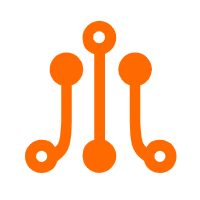 ApsaraDB for HBase
ApsaraDB for HBase
ApsaraDB for HBase is a NoSQL database engine that is highly optimized and 100% compatible with the community edition of HBase.
Learn More Offline Visual Intelligence Software Packages
Offline Visual Intelligence Software Packages
Offline SDKs for visual production, such as image segmentation, video segmentation, and character recognition, based on deep learning technologies developed by Alibaba Cloud.
Learn MoreMore Posts by Alibaba Clouder